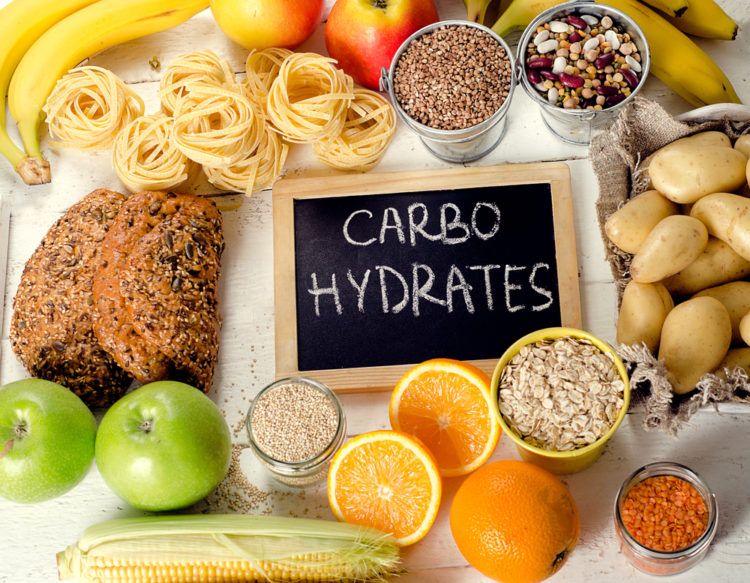A well-balanced diet serves as the cornerstone of robust physical health and plays a pivotal role in helping individuals achieve their fitness ambitions. For runners and joggers, the significance of focusing on particular dietary elements cannot be overstated. In this comprehensive guide, we will delve into the essential dietary components that can power your running journey, ensuring you’re primed for peak performance. Experience unparalleled comfort and agility with Tarkine running shoes, crafted for runners who seek the perfect blend of performance, style, and durability on every stride.
Essential Nutrition for Runners
A balanced diet is your trusted ally in achieving fitness goals, especially for those who lace up their running shoes. To optimize your performance and overall health, consider these essential dietary components:
1. Fruits and Vegetables: These nutrient-packed foods are rich in vitamins, minerals, and antioxidants, providing the foundation for a runner’s diet.
2. Lean Protein: Incorporate sources like fish, poultry, beans, lentils, and tofu to support muscle growth and repair.
3. Healthy Fats: Include olive oil, avocado, and nuts for a balanced intake of healthy fats.
4. Nutrient-Rich Carbohydrates: Opt for options like rice, whole-grain breads/pastas, and oatmeal to fuel your energy needs.
While the optimal balance of these components may vary among individuals, a general guideline for runners and joggers suggests that 60% to 70% of calories should come from carbohydrates, while lean protein and healthy fats should each make up 15% to 20% of the remaining calories.
Don’t Skimp on Carbs
While low-carb diets are often favored for weight loss, they are not conducive to distance runners. Running heavily relies on carbohydrates for endurance, making very low-carb diets, such as the ketogenic diet, ill-suited for runners. Experts recommend such diets only under medical supervision.
 Running utilizes both blood glucose and glycogen stores as primary energy sources. Maintaining ample carbohydrate intake ensures these energy stores are ready to support your training. Inadequate carbs can lead to fatigue and hinder post-run recovery.
Running utilizes both blood glucose and glycogen stores as primary energy sources. Maintaining ample carbohydrate intake ensures these energy stores are ready to support your training. Inadequate carbs can lead to fatigue and hinder post-run recovery.
Essential Nutrients for Runners
Running can alter your body’s nutritional requirements, especially for women. Inadequate calorie intake while engaging in running can deplete vital vitamins and minerals. Key nutrients for runners include:
- Calcium and Vitamin D: Crucial for bone health, particularly in women, to prevent bone mineral density loss and stress fractures. Dietary sources include fortified dairy, eggs, and calcium-rich foods like yogurt and cheese.
- Iron: Vital for oxygen transport, especially in menstruating individuals, as it can affect hemoglobin levels. Iron-rich foods, like poultry, legumes, and dark, leafy greens, should be coupled with vitamin C-rich foods for optimal absorption.
Pre-Run Nutrition
The ideal timing for a full meal is 2 to 3 hours before your run. This should consist of a balance between carbs and protein. If it’s been longer since your last meal, opt for a carbohydrate-rich snack 30 minutes before your run to ensure adequate glucose levels.
Boosting Glucose for Long Runs: For marathon or distance runners, carrying fuel is crucial for sustained energy. Options range from energy drinks to simple solutions like fruit snacks. Practice with these during training to find what works best for you.
Foods to Avoid Pre-Run: To prevent gastrointestinal distress, steer clear of spicy, high-fat, high-fiber, and caffeine-rich foods in the hours leading up to your run.
Carb Loading Considerations: Carb loading, the practice of consuming easily absorbed carbohydrates before a big race or distance run, can help replenish glycogen stores. Individual carbohydrate requirements may vary, but this method can be beneficial for long-distance events.
Post-Run Replenishment: After a run, a snack or light meal rich in complex carbohydrates and protein is crucial to replenish glycogen stores and support recovery and muscle repair.
In the exhilarating world of running and jogging, the road to success is paved with not just dedication, but also a well-balanced diet. We’ve explored the key components of a runner’s nutrition, emphasizing the importance of carbohydrates, lean proteins, healthy fats, and vital nutrients like calcium, vitamin D, and iron. Pre-run fueling, glucose boosters for long distances, and post-run recovery have all been unraveled.
As you chase your fitness goals, remember that listening to your body and fine-tuning your diet can be a rewarding journey of self-discovery. While every stride is unique, one thing is clear: a thoughtful approach to nutrition can propel you towards the finish line of your fitness aspirations. So, lace up, eat right, and conquer your running dreams, one step at a time.
Source: John Hopkins Medicine




